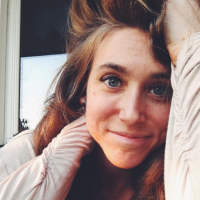View this post on Instagram
I’ve been watching myself for a while…noticing ways I carry tension, ways I resist just being.
How my hands are so often tense when I’m out for a walk.
How I feel uncomfortable with not having an article open when I drink my morning coffee.
How I feel an undercurrent of energy encouraging me to do something, anything when I’ve found myself not doing something…in the moments when I accidentally find myself in a gap of non-doing.
Thoughts willing me to be productive. To do something.
To do something productive with my time.
It’s one thing to do things because we have to or because we want to—to do errands that need to get done. To work. To study or pursue passions, things that energize us.
And it’s something completely else “to do” just out of discomfort of not doing. To move because we’re uncomfortable with not moving. To keep active because we feel we’ll fall behind if we stop or slow down or don’t push so hard. Or because we don’t know what to do with ourselves when we’re still.
It’s something that so many of us feel—whether we’re fully conscious of it or not. And it’s so subtle, so pervasive that we may not fully understand what’s happening—why we feel an almost constant urge to move, to do.
Within this urge lies a fear of falling behind, of “losing out,” of possibly missing something that we’ll regret. Of not getting to where we want to go (or think we should go).
It’s hard to pinpoint where it stems from—how we became like this—because the energy of it is all around us. It percolates throughout our world. So many of us have this beating within us.
And it’s so subtle that, in a way, we almost take it as a given. Too often we don’t question it. We just give in to the knee-jerk reaction of doing whatever it is we feel compelled to do in the uncomfortable moment.
But we should be able to feel comfortable in stillness. Ease with not doing.
We should be able to consciously choose each one of our movements, the things we do. Either because we want to or because it’s something that we know we have to do.
And in the moments when we don’t have to do something, we should be able to feel okay with slowing down. With breathing in the space of non-doing. With just allowing whatever is happening to happen. To flow with whatever the moment is calling to us.
We can’t force ourselves to just suddenly be okay with slowing down.
But we can get there through awareness.
Through just becoming aware.
Becoming aware of the moments when we feel discomfort—the non-doing moments that make us feel uncomfortable. We can watch the thoughts that tell us to do, feel the energy that pulls and moves in our bodies, the angst that arises from just sitting or lying.
And then we can choose to sit or lie anyway. To just continue with the non-doing thing that’s causing the discomfort to arise within us.
To rest even though it may feel uncomfortable.
Even if our mind is trying to tell us that we don’t have time. That we’re being lazy. That we’ll fall behind. That we’ll never achieve that thing we want to achieve.
What kind of life do we want to live?
One of conscious action and intention?
Or one out of knee-jerk reactions to discomfort and fear?
We can like to move and be productive with the things we like to do. But we shouldn’t strive to be productive just “to be productive.” Just so we’re moving and doing.
We should be able to move when we want and slow down when it feels good.
To rest when it feels right.
And to pursue because we want to.
To start to break the pattern, the habit of movement, we just have to become aware—of the discomfort, of the restlessness, of the resistance. Our resistance to resting, to slowing down, to being still, to doing nothing.
And then we have to choose to move with that slowness, that stillness, that non-doing anyway, despite the discomfort—while also observing that discomfort move within us.
There are lessons here that we can learn. There are things the discomfort can tell us.
We just have to slow down and pay attention.
And allow ourselves to learn.
~








Read 9 comments and reply